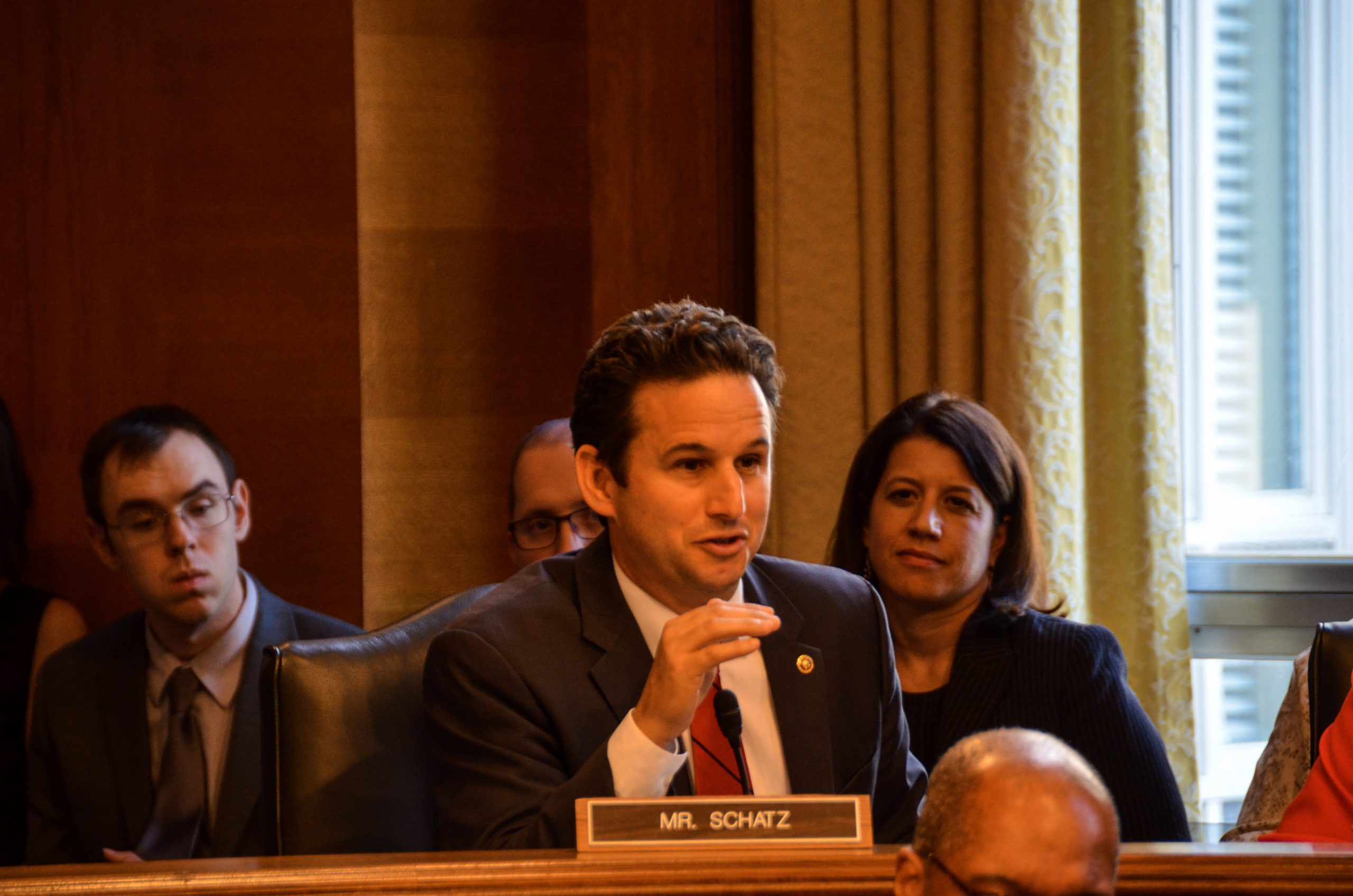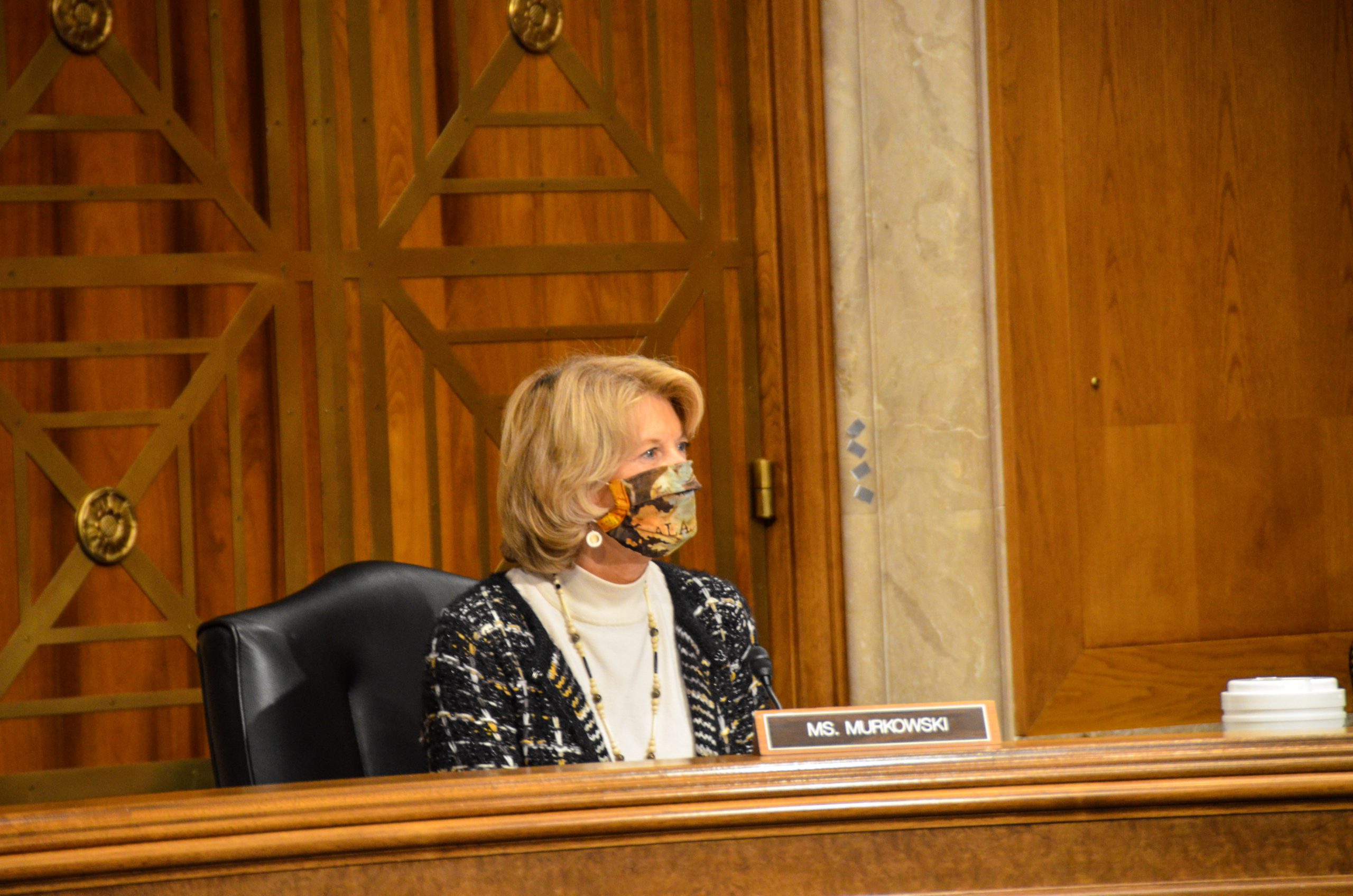Indianz.Com > News > Senate Committee on Indian Affairs meets under new leadership
Senate Committee on Indian Affairs meets under new leadership
Wednesday, February 10, 2021
Indianz.Com
WASHINGTON, D.C. — Indian Country will be seeing major change on Capitol Hill as the Senate Committee on Indian Affairs meets for the first time in the 117th Congress.
The committee is holding an organizational meeting on Thursday morning. The legislative panel’s first order of business is the formal selection of a chair and vice chair.
Sen. Brian Schatz (D-Hawaii) is the new chairman of the committee. He is the third lawmaker from Hawaii in the role, following in the footsteps of the legendary former Sen. Daniel Inouye (D) and the late Sen. Daniel Akaka (D).
“We all need to work together and support Native families and communities across the nation,” Schatz said during a speech on the U.S. Senate floor last Wednesday.
“I think about the history of the Senate Committee on Indian Affairs, and I think of my two predecessors, Senator Daniel K. Inouye and Senator Daniel Kahikina Akaka, and the
legacies that they built of bipartisanship,” Schatz said as he took note of the tradition he is carrying on for Hawaii, the 50th state.


• Sen. Maria Cantwell (D-Washington), Former Chair
• Sen. Jon Tester (D-Montana), Former Chair and Former Vice Chair
• Sen. Catherine Cortez Masto (D-Nevada)
• Sen. Tina Smith (D-Minnesota)
• Sen. Ben Ray Luján (D-New Mexico), New member of panel “Our Native American brothers and sisters on tribal lands are four times more likely to contract COVID-19 and twice as likely to die from it,” Luján noted during a speech on the Senate floor last Wednesday. Luján is a new member of the chamber, having won election last November. In serving on the Senate Committee on Indian Affairs, he continues a tradition of representation from New Mexico that includes former Sen. Tom Udall (D), who was the vice chair of the panel during the last session of Congress.
• Sen. John Hoeven (R-North Dakota), Former Chair, 116th Congress
• Sen. James Lankford (R-Oklahoma)
• Sen. Steve Daines (R-Montana)
• Sen. Mike Rounds (R-South Dakota), New member of panel
• Sen. Jerry Moran (R-Kansas) Notably, no one from the Northeast or the Southeast serves on the committee, though there has been representation from North Carolina in the past. No one from California, which is home to the largest population of American Indians and Alaska Natives and more than 100 tribes, is on the panel either. The organizational meeting takes place at 11am Eastern, 6am Hawaii time. The early call time is necessary since the Senate is holding an impeachment trial for Donald Trump, the Republican former president accused of incitement of insurrection in connection with the violent attack on the U.S. Capitol on January 6. The meeting will be livestreamed on indian.senate.gov.
Senate Committee on Indian Affairs Notice
Organizational Business Meeting (February 11, 2021)
Search
Filed Under
Tags
More Headlines
Native America Calling: Mental health experts point to personal connections to maintain winter mental health
Native America Calling: Tribes ponder blood quantum alternative
Defense bill snubs Indian Country in favor of Lumbee federal recognition
NAFOA: 5 Things You Need to Know this Week (December 8, 2025)
Chuck Hoskin: Cherokee Nation benefits from extension of health care credits
Native America Calling: Tribal museums reflect on tumultuous year, chart their next steps
Press Release: National Museum of the American Indian hosts Native art market
AUDIO: Sea Lion Predation in the Pacific Northwest
Native America Calling: Tribal colleges see an uncertain federal funding road ahead
Native America Calling: Short films taking on big stories
Native America Calling: Advocates push back against new obstacles to Missing and Murdered Indigenous Relatives momentum
Native America Calling: For all its promise, AI is a potential threat to culture
NAFOA: 5 Things You Need to Know this Week (November 24, 2025)
Chuck Hoskin: Cherokee Nation invests in rural transportation
Native America Calling: Native candidates make strides in local elections
More Headlines
Native America Calling: Tribes ponder blood quantum alternative
Defense bill snubs Indian Country in favor of Lumbee federal recognition
NAFOA: 5 Things You Need to Know this Week (December 8, 2025)
Chuck Hoskin: Cherokee Nation benefits from extension of health care credits
Native America Calling: Tribal museums reflect on tumultuous year, chart their next steps
Press Release: National Museum of the American Indian hosts Native art market
AUDIO: Sea Lion Predation in the Pacific Northwest
Native America Calling: Tribal colleges see an uncertain federal funding road ahead
Native America Calling: Short films taking on big stories
Native America Calling: Advocates push back against new obstacles to Missing and Murdered Indigenous Relatives momentum
Native America Calling: For all its promise, AI is a potential threat to culture
NAFOA: 5 Things You Need to Know this Week (November 24, 2025)
Chuck Hoskin: Cherokee Nation invests in rural transportation
Native America Calling: Native candidates make strides in local elections
More Headlines